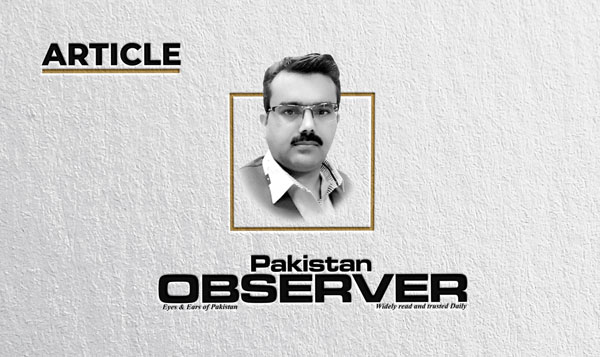PWDs call for an inclusive and barrier-free society
DISABILITY was once considered as the punishment for wrongdoing and sin committed by the disabled person or parents.
However, with the passage of time, this religious model of disability was replaced by a medical model which views disability as medical problem, disease or impairment need to be cured and eradicated through medical treatment by health professionals.
This perspective sees the disability to be a problem of the individual which hinders to move and act in society like a normal person.
Conversely, another model known as social model describes disability as a socially created problem.
This model further argues that some systemic, environmental and attitudinal barriers created by the society actually make these people disabled.
By providing disabled friendly environment, the persons having impairment can be made an active and productive element of society.
According to the model, society is responsible for transformation of environment as accessible and friendly to the PWDs enabling them to participate in society on an equal basis.
Some physical alteration and modifications such as providing ramps in buildings, accessible toilets, widening doorways and friendly public transportation etc can turn a disability into an ability.
Likewise, by removing attitudinal barriers, PWDs can be independent and equal in society with better social functioning.
From this perspective, using word “Disabled Persons” is inappropriate rather some new terms like “special persons”, “persons with disabilities (PWDs)” or “persons with different abilities” are chosen to be used.
I personally feel that “Persons with different abilities” is more apt for these persons who are in fact not disabled but have been blessed with lots of different abilities.
Their abilities and talent can be made beneficial and productive if they are provided with an inclusive environment and equal opportunities.
It is collective responsibility of society to offer an accessible barrier-free environment to PWDs to make them an active part of the mainstream.
Pakistan lacks reliable statistics on disability and there is big conflict regarding data presented by different organizations but there is no disagreement on the point that PWDs in Pakistan are faced with multiple problems ranging from socio-cultural, psychological, health, education, economic as well as discrimination and social exclusion related issues.
From the past few years, issues pertaining to PWDs are being debated widely in Pakistan and some key initiatives have been taken.
The Supreme Court of Pakistan issued a significant directions regarding implementation of employment quota for PWDs.
The apex court also issued directions to the federal and provincial governments to discontinue using derogatory words like “disabled,” “physically handicapped” and “mentally retarded” in official correspondence, directives, notifications and circulars and shift to “persons with disabilities” or “persons with different abilities”.
This is undoubtedly a big step towards removing social barriers faced by the PWDs. In Pakistan, PWDs have been given meagre employment quota in public and private sectors but unfortunately the same has not been observed fully too.
According to the Disabled Persons’ (Employment and Rehabilitation) Ordinance, 1981, it is obligatory for each government establishment to observe the employment quota fixed for PWDs.
Similarly, each private establishment, in which the number of workers employed at any time during a year is not less than one hundred, is required to observe the employment quota for PWDs.
Recently, the Punjab government has enhanced the employment quota from 2 to 3 percent and some other concessions and facilities for PWDs have also been announced.
But unfortunately policy implementation has always been a big issue in Pakistan. Nevertheless, if the employment quota is implemented fully in public and private sectors, thousands of jobs can be offered to PWDs which will be a big step towards mitigating their socio-economic sufferings.
In accordance with the theme of International Day of Persons with Disabilities “Transformative solutions for inclusive development: the role of innovation in fuelling an accessible and equitable world”, it is time to identify the systemic and attitudinal barriers and challenges faced by PWDs and find the solutions leading towards inclusive development.
Government should play role in promoting knowledge and technical skills, creating employment opportunities, developing linkages and providing an inclusive environment for the PWDs especially at workplace with the aim of increasing accessibility to employment.
Moreover, it is need of the hour to create maximum awareness at large to sensitize the society to accept PWDs with all their limitations and equal opportunities are to be opened up making them well integrated and productive members of society.
—The writer is PhD and serving at Social Welfare & Bait-ul-Maal Department Punjab.










